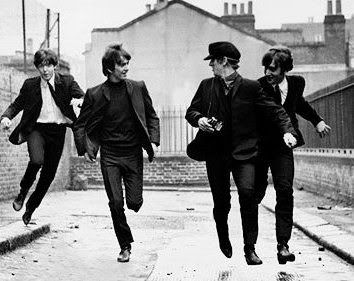
Alright, before anything else, let me say that "The Graduate" is definitely one of the best films of all time. And I rarely brand any films with such commendations quite easily (as if I'm a somebody. Ha.). It features a more-than-worthy star-making performance by Dustin Hoffman and Anne Bancroft's memorable and definitive portrayal of a promiscuous cougar in the guise of Mrs. Robinson. Add up the beautiful songs of Simon & Garfunkel and a deeply resonant ending, we got here a masterpiece.
But when I say 'masterpiece', it's not by the standards of what the word may immediately connote (pageantry, scope, larger-than-life actors) mind you, but what this influential little film has left behind. Back in the late 60's when it was released, with much cultural changes happening in the forefronts of America, maybe its popularity has sparked mainly because its main theme hasn't been explored before. Sure it's a romantic-comedy. Sure it's a love story. But at the time prior to this, mainstream speaking, any films of the genre won't mean anything if it isn't anchored by A-list stars.
Then "The Graduate" came. It's a story of a newly graduated man. It should be happy, right? Even I thought so. The film opens with our protagonist, Benjamin Braddock (Dustin Hoffman) sitting in an airplane. He should be glad, right? the camera then follows him as he steps onto a moving walkway with his face filled with uncertainty, fearfulness and a hint of dread. Yes, he graduated, but he doesn't know what to do next. Then he encounters one of his parents' friends, Mrs. Robinson. She asks him to drive her home, offers him a drink and requested for him to unzip her dress. This should have been a meet cute film, right? After some time, he delves into a semi-guilt-ridden affair with her. Hesitant at first, he likes the idea of it, and he likes her too. But then he meets Mrs. Robinson's daughter, Elaine (Katharine Ross). He loves her at first sight but Mrs. Robinson won't allow love to bud between the two. It should have been very easy, right?
From those complications rooted out from the idea of romantic relationships, "The Graduate", based on a novel by Charles Webb, unfolded what it was all about. Of course it's mainly focused on Benjamin's elusive quest for love, but I think the film is more about his existential search for meaning and its consequences. Only from that that his two-sided encounter with love, transgressive, determined and all, was inspired. And with the help of the uncommon cinematography by Robert Surtees which occasionally focuses shots into Hoffman's face with an intent to document his subtle pain and emotional crisis through his facial expressions, "The Graduate", aside from being an unorthodox tale of romance, succeeded to show the sweltering pressure of a newly grad whose own mind dictates he's got nowhere to go.
The film is filled with many memorable sequences, but there's one great scene in it where Benjamin, wearing a scuba outfit, enters the swimming pool and in the presence of his parents and some other guests, remained standing, motionless, below the water. It's a moment that can easily be gazed upon as a random slip-in about suburban life's view of young people's successes. But through its initial first person point of view to his plunge into the pool, it finely highlights his isolation, with the water pressure translating into his own and from that bluish loneliness he seeks to find warmth. But he is cornered. By his parents. By his parents' friends. By himself.
"The Graduate", directed masterfully by Mike Nichols, is an unforgettable film. Not just because of some of its laughs or its central romantic arc, but because of its exposition of the difference between flirting with the idea of love and simply embracing it. We saw both sides, Benjamin experienced both; he preferred the euphoria of true romance. But after all, uncertainty is still in his eyes and a sole question still in his mind: "What should I do next?"
As the film ends, I can't help but give "The Graduate" a small applause and slightly scold myself as to why I haven't seen it sooner. A true classic, and what "Fargo" is to Roger Ebert (as a definitive reason as to why he loves movies), "The Graduate" is to me. It really is.





